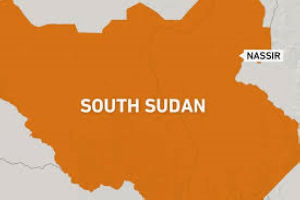The Fisheries Commission would soon roll out measures to screen fish at the various landing sites before they are sold out to the market, the Central Regional Director of the Commission, Mr. Papa Yaw Atobrah has disclosed.
He said the measure was to prevent the sale and consumption of fish caught through the use of dynamite, DDT, Carbide and other poisonous chemicals, which posed serious health hazards to fish consumers.
The Chemicals, he said, also exposed fishmongers to danger as their fingers get swollen when they prepare such fish for smoking.
Mr. Atobrah, who stated this at a day’s workshop on Fisheries Law Enforcement in Cape Coast on Thursday, said perpetrators, when caught, will not be spared but made to face the full rigorous of the law.
The workshop organized by Friends of the Nation (FoN) with support from BUSAC FUND was aimed at creating a platform for discussion on issues of weak enforcement and low compliance of fisheries laws. It was attended by Security personnel, Chief fishermen and other stakeholders.
Mr. Atobrah said the ban on the use of monofilament and nets was still in forced and stressed the need for members of the fishing communities to adhere to the various fishing regulations to safeguard their own source of livelihood.
He explained that the ecological justification for the ban on use of the monofilament net was that the nets, made from rubber, were not biodegradable and when disposed into the sea, it trapped and killed several fishes on the blind side of fishermen.
The Regional Director further disclosed that the Commission was marking efforts to acquire a Fisheries Research Vessel (FRV) to reduce the try- and-error method of fishing being practiced by fishermen in the country.
An FRV is a ship designed and equipped to carry out scientifically based research to determine, among other things, areas of the sea where large quantities of fish may have gathered at a particular time to ensure bumper harvest.
He said in the 1980s, there were three of such vessels in the country strategically stationed at Takoradi in the Western Region, Elmina in the Central Region and Tema in the Greater Accra Region but currently none of these vessels were operational.
Mr. Atobrah revealed that the World Bank, in supporting the Fisheries Sector, gave the country some funds, part of which was supposed to be used in the purchase of a research vessel, but the money was not enough to purchase the said vessel.
He said since the funds allocated was insufficient the Commission was planning to supplement the money to acquire the vessel and assured that though the issue was still pending, the vessels will eventually be acquired to improve the sector.
Mr. Kyei Yamoah, Programmes Coordinator of FoN, identified the absence of fisheries enforcement and compliance strategy to guide the implementation of effective enforcement and compliance actions, as one of the key elements for the weak governance of the fisheries sector.
He said some of the operational challenges included poor canoe identification, spread of Landing Sites, fishing Gear and Ethnicity relations, weak monitoring, Control, Surveillance (MCS) and Enforcement.
Mr Yamoah said though circuit courts had been designated for handling fisheries related offense and infraction of the fisheries laws and regulations, the slow pace of adjudication of cases discouraged officers who arrested the offenders.
He advocated the development of policies and laws to strengthen compliance and enforcement, improvement of registration and licensing of vessels to ensure proper identification of culprits as well as strengthening of at-sea surveillance
Participants called on the Fisheries Commission to ensure that politicians disassociated themselves from fisheries issues since they were taking advantage of the ignorance of some of them to satisfy their selfish ambitions.
Health News of Saturday, 31 January 2015
Source: GNA












